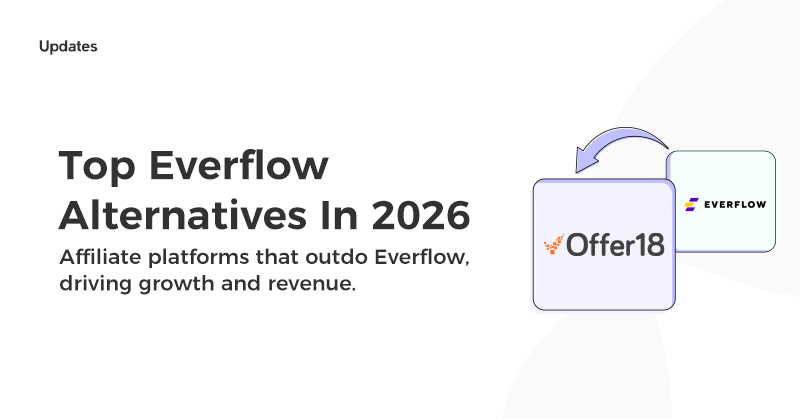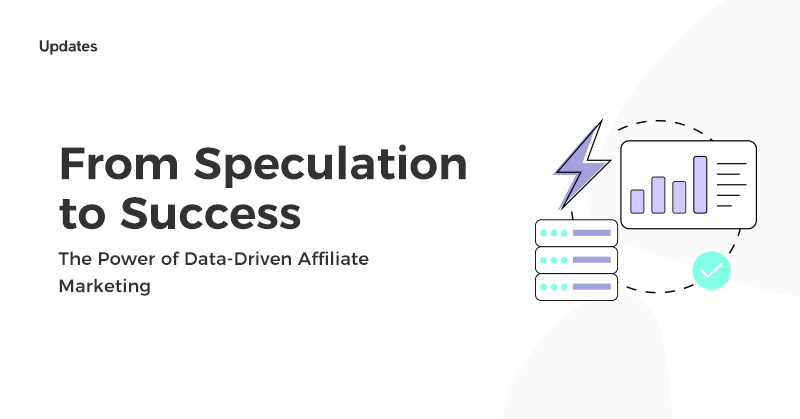
Share
Affiliate marketing combines creativity, strategy, and careful financial planning. With automation streamlining tasks and enhancing efficiency, understanding how to set an appropriate budget for your campaigns is more important than ever. A balanced budget helps maximize your investments, ensuring that every dollar spent contributes to your campaign’s success. Here, we’ll explore the key considerations for effectively automating affiliate marketing without overspending.
The Importance of Budgeting in Automated Affiliate Marketing
Budgeting is foundational in any marketing strategy, but it takes on particular significance when automation is involved. By automating affiliate marketing, businesses can reduce time spent on repetitive tasks, from tracking conversions to managing partnerships. However, these tools and services come with costs, and planning a budget helps prevent overspending while still achieving growth goals.
Setting Clear Goals for Your Campaign
Start with identifying the objectives of your campaign. Are you looking to increase sales, raise brand awareness, or drive website traffic? These goals will shape how you allocate funds toward tools, advertising, and affiliate commissions. If the primary aim is to drive sales, then a significant portion of your budget might go toward affiliate commissions. On the other hand, if brand awareness is the focus, more investment in advertising and tools to automate affiliate marketing could be worthwhile.
Assessing the Cost of Automation Tools
After defining your goals, examine the costs of automation tools. These platforms are designed to streamline operations but vary widely in pricing. While some offer basic plans, many charge more for features like detailed analytics, advanced reporting, or custom integrations. Calculate these expenses in your affiliate marketing budget to avoid surprise costs. Also, think about the best affiliate marketing software out there, as it can make your efforts even better.
Setting Competitive Affiliate Commissions
Commissions for affiliates represent another major budget area. Affiliates expect fair compensation, and setting a competitive commission rate is vital to keep them engaged. Whether you offer a fixed amount per sale or a percentage of each sale, these payouts must align with your overall budget. Finding the balance between affordability and attractiveness can ensure that affiliates stay committed to promoting your brand.
Tracking Performance Metrics for Budget Optimization
Another important aspect of budgeting is tracking performance metrics. Automation tools provide detailed insights into key indicators, such as ROI, conversion rates, and click-through rates. By analyzing these metrics regularly, you can adjust your budget to focus on what works best. For example, if you find higher ROI from certain affiliates, channels, or strategies, you might decide to allocate more funds there.
Planning for Unforeseen Costs
It's also wise to plan for unforeseen costs. Many automation platforms charge additional fees for premium features that might eventually prove beneficial to your campaign. Furthermore, adjustments based on audience behavior, market changes, or affiliate preferences are often necessary. A flexible budget accommodates these shifts without straining your resources.
Evaluating the True Costs of Automation Tools
While automation tools simplify affiliate marketing, they also introduce complexities. Some platforms offer basic plans that appear affordable but lack necessary features. Upgrading to premium plans to access stronger options can quickly add to costs. Assess the capabilities and potential fees associated with each tool before committing.
Keeping Affiliates Engaged with Competitive Incentives
One common budgeting mistake is overlooking the importance of affiliate incentives. Affiliates are more likely to prioritize campaigns that offer competitive rewards. Neglecting to invest in appealing incentives can result in lower engagement and lackluster performance. Include funds for affiliate incentives to foster enthusiasm and loyalty within your network.
Adapting Your Budget with Real-Time Data
Sticking to a rigid budget is another frequent error. Automation tools provide real-time data that can help guide budget adjustments. Ignoring these insights may waste resources on underperforming strategies. Instead, use the information from automation platforms to refine your spending and focus on what drives the best results.
Choosing the Right Tools to Automate Affiliate Marketing
Choosing the right tools to automate affiliate marketing is crucial. Platforms like Offer18 offer tailored automation features designed specifically for affiliate campaigns. These tools handle everything from tracking conversions to managing payouts, allowing you to prioritize strategy and growth. Include the costs of such platforms in your budget, along with other campaign-related expenses like advertising and affiliate payments.
Balancing Key Elements for a Successful Affiliate Marketing Budget
A successful affiliate marketing budget includes multiple elements, such as automation costs, affiliate payouts, advertising expenses, and flexibility for adjustments. By allocating funds carefully, businesses can automate affiliate marketing without compromising the quality or effectiveness of their campaigns. Begin with a clear understanding of your campaign goals, evaluate available tools, and regularly monitor performance metrics to fine-tune your approach.
Leveraging Automation for Consistent and Scalable Campaigns
When automation tools are smoothly integrated into campaigns, they can offer a competitive edge. They simplify operations and enable data-driven decision-making, which can ultimately improve overall campaign performance. For example, tracking affiliate performance in real-time helps businesses identify their best partners and pinpoint underperforming areas. While this level of insight is invaluable, it requires a budget allocation that supports advanced analytics.
Scaling Your Campaigns as Your Affiliate Program Grows
Another consideration is scaling your campaigns while leveraging tools to automate affiliate marketing. As your affiliate program grows, so do your expenses. More affiliates lead to higher commission payouts, increased tool usage, and potentially larger advertising costs. Planning for scalability in your budget helps you manage growth without sacrificing profitability.
Investing in Customer Segmentation for Improved Targeting
Customer segmentation, which targets specific audience groups, is another area that can influence your budget. Automation tools often include features that allow for this kind of precision targeting, which improves campaign effectiveness. However, this may require investment in advanced analytics or custom integrations. Allocating funds for these features can make your campaigns more effective and your spending more efficient.
Monitoring Trends and Competitor Actions
Budgeting for affiliate marketing is an ongoing process. Market trends, competitor actions, and audience behavior are constantly evolving, often requiring adjustments to your budget. Monitoring these factors and adapting your spending allows you to maintain a competitive edge. Automation tools make this process easier by providing real-time insights that guide spending decisions.
Prioritizing Affiliate Recruitment
Don’t overlook the importance of recruiting high-quality affiliates. Attracting top-tier affiliates can require additional effort and investment. Whether through exclusive incentives, promotional campaigns, or specialized recruitment tools, these activities need to be included in your budget. The caliber of affiliates you attract can directly impact your campaign’s success, making recruitment a worthwhile investment in the future of affiliate marketing.
Conclusion
Setting an affiliate marketing budget for automation campaigns involves thoughtful planning, strategic allocation, and continual adjustments. By defining objectives, evaluating automation costs, and prioritizing affiliate engagement, businesses can effectively automate affiliate marketing and achieve sustained growth. With a balanced budget in place, automation becomes a powerful tool to help scale your affiliate marketing efforts.
Taking a thoughtful approach to budgeting lets businesses make the most of automation in affiliate marketing. This ensures efficient resource use, affiliate engagement, and positive results. Start planning your affiliate marketing budget today to pave the way for success in this dynamic field.



